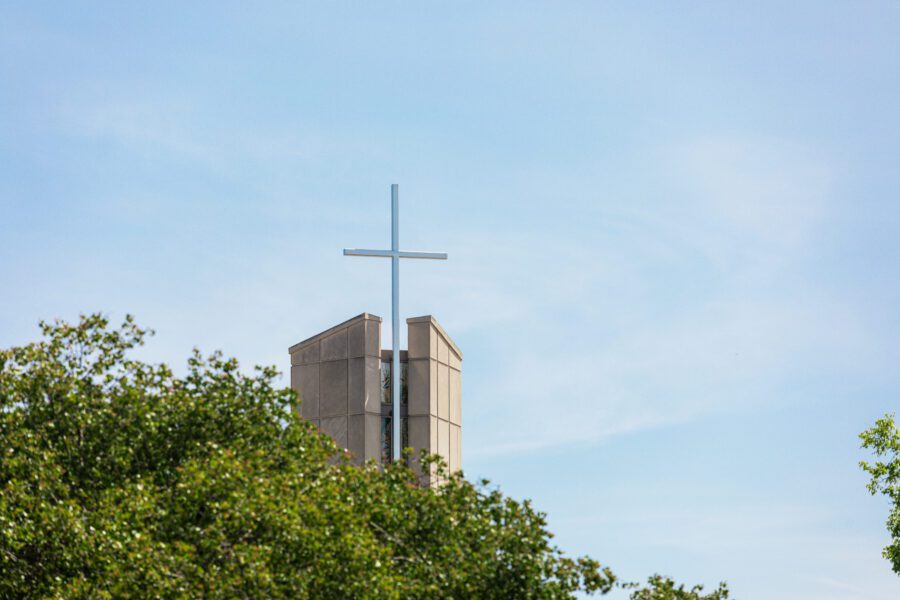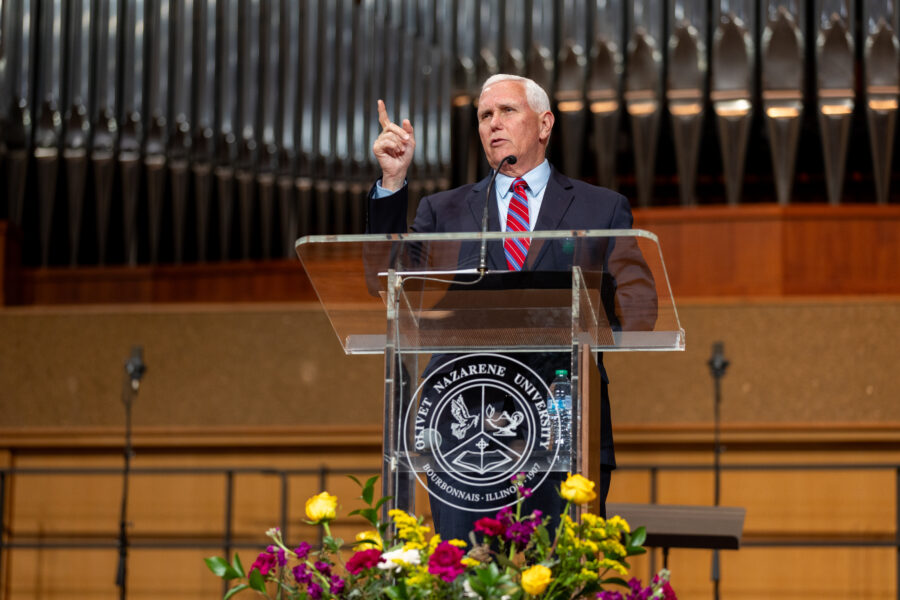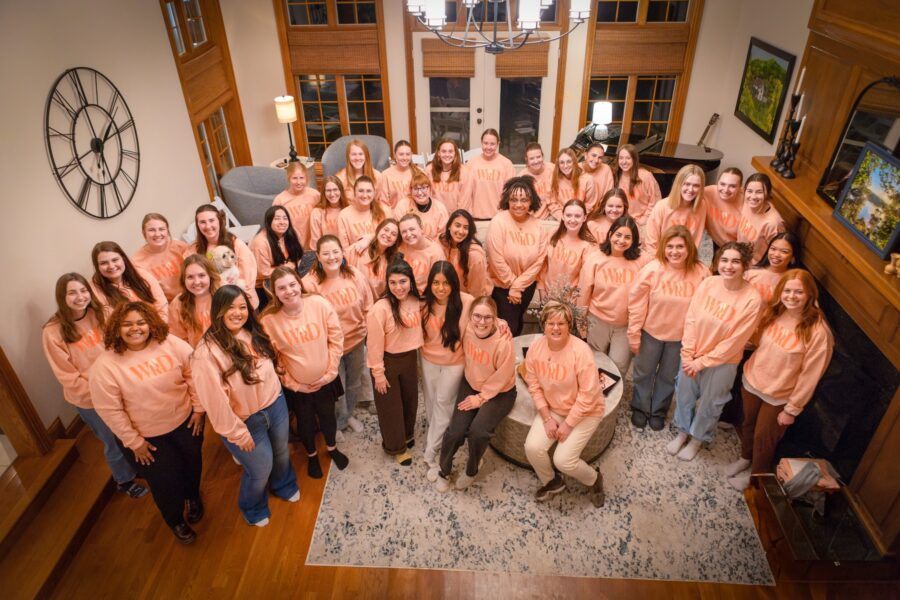
“Shalom is more than just peace; it’s God’s invitation for us to participate in a journey toward wholeness,” Kristi Seneca shared as she opened her first of back-to-back chapel messages.
In her first chapel talk, Kristi explained the meaning behind “Araine Week,” a special event aimed at providing students tangible opportunities to bring Shalom—or God’s peace—into their lives and the world around them. Rather than viewing Shalom as merely an absence of conflict, Kristi reminded the audience that it signifies wholeness, healing, and the restoration of all things. Reflecting on recent natural disasters, such as Hurricane Milton, she encouraged students to pray for peace in these affected areas, connecting this concept of Shalom with real-world events. “Our God is bigger than the storms,” she affirmed, urging students to place their trust in God’s ability to bring calm in turbulent times.
Kristi shared the powerful story of her own journey to becoming a missionary. Her family had been living a life of comfort and success, seemingly achieving what society defines as the American dream. But something was missing. She described this as a “holy discontent,” a stirring in her and her husband Sam’s hearts that made them question if God was calling them to something deeper. Through a series of small, faithful steps—first leading a mission trip, then exploring the missionary process—they began to realize that God was inviting them into a new season of life. Reflecting on this experience, Kristi explained how they embraced the unknown, stepping into what she calls a “liminal space,” a place where the familiar fades away, and only God’s guidance remains.
“Liminal spaces are those in-between moments,” she explained, “when we can’t go back, but we’re not sure where we’re headed. It’s in these spaces that God does His deepest work in us.” For Kristi, this space of uncertainty led to an unexpected yet transformative journey as her family relocated to the Dominican Republic, where they served for over two years, building community and sharing God’s love with people from diverse backgrounds. She encouraged students to consider where God might be leading them into their own liminal spaces and challenged them to step out of their comfort zones, trusting in God’s ability to guide them through uncertainty.
In her second chapel, Kristi continued to explore the theme of stepping into the unknown by sharing from Mark 5, the story of Jesus and the man possessed by a legion of demons. She described the intense discomfort the disciples must have felt as they entered Gentile territory—a place filled with unfamiliar customs, considered unclean by Jewish standards. And yet, Jesus did not hesitate to cross the sea and step into the chaos of the man’s life. This act, Kristi noted, demonstrated how Jesus brings peace even into the darkest corners of the world.
“Following Jesus means going where others won’t go,” Kristi said, “and bringing His Shalom to places we never imagined.” Whether on a mission trip or in everyday life, each of us is invited to share God’s peace with those around us. Kristi emphasized that this is not merely for pastors or missionaries but for anyone willing to step out in faith.
As she concluded, Kristi reminded them that God’s peace is not just a concept but a call to action. “The Shalom Project is here to give you a chance to step out, but remember, God’s mission continues wherever He places you.”
To watch Olivet chapel services, click here.





